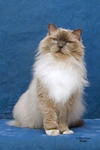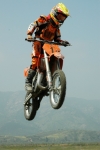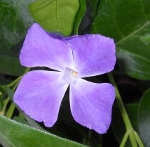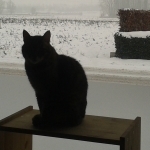no apnea events but cpap recommended
-
babby
no apnea events but cpap recommended
Newbie here.
I recently had a sleep study:
- 0 apneas/hour
- 24.1 arousals and awakenings/hour
- during REM: 15 respiratory-related arousals/hour & 1.7 snoring-related arousals/hour
- during NREM: 2.7 respiratory-related arousals/hour & 22.1 snoring-related arousals/hour
- 11.2% delta sleep
- 11.2% REM sleep
- AHI 7.7
- REM AHI 23.3
- RDI 27.7
Despite no apneas, I was diagnosed with moderate OSA and recommended CPAP. I am coming here for advice from you experts because I am hesitant to spend even more money on a titration study (my insurance didn't cover $930 of the first night's study - so that's what I paid), a machine, and supplies. However, if the machine will help me get better sleep despite no apneas, then I’m all for it.
Several people I know (who have the same doctor) were prescribed an APAP after the first study night without titration, and this strategy seems to work for them. However, I don’t think they claimed any of this on their insurance.
Based on all this, I have a few questions:
1. Do people without apnea events experience improvements with CPAP or APAP therapy?
2. Will insurance cover an APAP if I never had a titration study? I called to ask, but the rep was unable to give me a clear answer.
3. If I buy an APAP online without using my insurance, can I then get APAP supplies covered by insurance if I never had a titration study?
Thanks so much for any advice you can give!
I recently had a sleep study:
- 0 apneas/hour
- 24.1 arousals and awakenings/hour
- during REM: 15 respiratory-related arousals/hour & 1.7 snoring-related arousals/hour
- during NREM: 2.7 respiratory-related arousals/hour & 22.1 snoring-related arousals/hour
- 11.2% delta sleep
- 11.2% REM sleep
- AHI 7.7
- REM AHI 23.3
- RDI 27.7
Despite no apneas, I was diagnosed with moderate OSA and recommended CPAP. I am coming here for advice from you experts because I am hesitant to spend even more money on a titration study (my insurance didn't cover $930 of the first night's study - so that's what I paid), a machine, and supplies. However, if the machine will help me get better sleep despite no apneas, then I’m all for it.
Several people I know (who have the same doctor) were prescribed an APAP after the first study night without titration, and this strategy seems to work for them. However, I don’t think they claimed any of this on their insurance.
Based on all this, I have a few questions:
1. Do people without apnea events experience improvements with CPAP or APAP therapy?
2. Will insurance cover an APAP if I never had a titration study? I called to ask, but the rep was unable to give me a clear answer.
3. If I buy an APAP online without using my insurance, can I then get APAP supplies covered by insurance if I never had a titration study?
Thanks so much for any advice you can give!
- zoocrewphoto
- Posts: 3732
- Joined: Mon Apr 30, 2012 10:34 pm
- Location: Seatac, WA
Re: no apnea events but cpap recommended
cpap/apap can help without apneas. Did the report say anything about hypopneas? You listed an ahi, so there must have been something.
Not sure about the insurance issues. If the doctor prescribes a cpap/apap, I would assume they would cover it and the supplies. But each insurance is different in their coverage requirements.
Not sure about the insurance issues. If the doctor prescribes a cpap/apap, I would assume they would cover it and the supplies. But each insurance is different in their coverage requirements.
_________________
| Mask: Quattro™ FX Full Face CPAP Mask with Headgear |
| Humidifier: S9™ Series H5i™ Heated Humidifier with Climate Control |
| Additional Comments: Resmed S9 autoset pressure range 11-17 |
Who would have thought it would be this challenging to sleep and breathe at the same time?
- CarpeNoctum
- Posts: 116
- Joined: Tue Nov 01, 2011 7:40 pm
- Location: Ilwaco WA
Re: no apnea events but cpap recommended
The apap machines are sometimes called self-titrating. The technique is to set ranges quite wide and then look at data to see what pressures the machine "chose" to prevent events. Later the range can be narrowed a bit. This is what my Doc did so I only had one study to pay for.babby wrote: Several people I know (who have the same doctor) were prescribed an APAP after the first study night without titration
Sleep disruption and oxygen deprivation are the damaging issues with apnea. You must be suffering some symptoms to have a study requested and obviously related to sleep disruption. Run the auto idea past the Doc and see what he says.
CN
Re: no apnea events but cpap recommended
I'm in a similar boat. AHI of 11 (yours was 7.7), but RDI of 21.6 (yours was 27.7). I started CPAP on Aug. 25th. Best decision I ever made. I was exhausted when I started, I'd forgotten what it was like to sleep soundly all night. I've slept without my machine only once since then, and that was because I couldn't wear my mask (my nose had developed a nasty sore). I woke up the next day feeling like garbage.
Get the machine and don't look back. It might take a while before you start to turn your sleep deficit around, but it'll happen. I went a long time, maybe a week or two?, just dreaming all night long, because I hadn't been getting any REM sleep before I started treatment. The arousals you experience are called "RERAs" for respiratory event related arousals. They are real, and they are disturbing your sleep.
I felt so good after starting on my machine that I purchased a used backup machine, "just in case"-- because I never, ever want to have to sleep without it again.
When I got my diagnosis, my daughter said her boyfriend had told her once "Your dad always looks so exhausted." Yeah, it'll make a difference, and people around you will notice.
I guess I should add that if you lurk about on here long enough you'll see that my experience was not typical, in that it usually takes folks a while to get used to wearing the mask all night. I knew I pretty much had to do it so I just lowered my head and did it, and somehow it just worked for me. I've averaged 8 hrs and 45 min per night from the beginning, wearing the mask for every single minute of sleep except that one night I mentioned. Typically people gradually work their way into it. If you look at the top of this page there are some "sticky" threads for newbies, and you'll find success stories that are more typical.
No matter what, I way stick with it. My sleep quality improved so much that I honestly start looking forward to going to bed early in the evening. I head upstairs at about 8:30pm each night, and by 9pm my lights are out. Good, sound sleep is like a drug to me, I just can't get enough. I feel great when I'm getting good quality sleep.
Get the machine and don't look back. It might take a while before you start to turn your sleep deficit around, but it'll happen. I went a long time, maybe a week or two?, just dreaming all night long, because I hadn't been getting any REM sleep before I started treatment. The arousals you experience are called "RERAs" for respiratory event related arousals. They are real, and they are disturbing your sleep.
I felt so good after starting on my machine that I purchased a used backup machine, "just in case"-- because I never, ever want to have to sleep without it again.
When I got my diagnosis, my daughter said her boyfriend had told her once "Your dad always looks so exhausted." Yeah, it'll make a difference, and people around you will notice.
I guess I should add that if you lurk about on here long enough you'll see that my experience was not typical, in that it usually takes folks a while to get used to wearing the mask all night. I knew I pretty much had to do it so I just lowered my head and did it, and somehow it just worked for me. I've averaged 8 hrs and 45 min per night from the beginning, wearing the mask for every single minute of sleep except that one night I mentioned. Typically people gradually work their way into it. If you look at the top of this page there are some "sticky" threads for newbies, and you'll find success stories that are more typical.
No matter what, I way stick with it. My sleep quality improved so much that I honestly start looking forward to going to bed early in the evening. I head upstairs at about 8:30pm each night, and by 9pm my lights are out. Good, sound sleep is like a drug to me, I just can't get enough. I feel great when I'm getting good quality sleep.
_________________
| Mask: Eson™ Nasal CPAP Mask with Headgear |
| Humidifier: S9™ Series H5i™ Heated Humidifier with Climate Control |
Re: no apnea events but cpap recommended
An AHI of 7.7 would be considered MILD sleep apnea. AHI of 15-30 is considered MODERATE. It's unusual that you would average 7,7 events per hour without having any apneas. All events must have been hypopnias and centrals.
_________________
| Machine: ResMed AirSense™ 10 AutoSet™ CPAP Machine with HumidAir™ Heated Humidifier |
| Mask: Fisher & Paykel Vitera Full Face Mask with Headgear (S, M, or L Cushion) |
| Additional Comments: Back up is a new AS10. |
-
babby
Re: no apnea events but cpap recommended
Thank you all for your insight. This is so helpful. I'm becoming convinced that I should pursue this further.
According to the report, all of my events were hypopneas.
Iowamv - Your experience is the same as the few people I know who have cpap or apap. They immediately noticed a very positive difference & won't go without it now. I sure hope my transition will be as easy!
According to the report, all of my events were hypopneas.
Iowamv - Your experience is the same as the few people I know who have cpap or apap. They immediately noticed a very positive difference & won't go without it now. I sure hope my transition will be as easy!
Re: no apnea events but cpap recommended
With 0 OA I would ask about an ASV machine. I was keeping my AHI in check with APAP but had centrals and HYpopneas.
I am new to the ASV and don't thoroughly understand it yet.
I am new to the ASV and don't thoroughly understand it yet.
_________________
| Mask: SleepWeaver 3D Soft Cloth Nasal CPAP Mask with Headgear |
| Additional Comments: AurCurve 10 ASV Also using Sleaplyhead 1.1, ResScan 6 and CMS50i |
- zoocrewphoto
- Posts: 3732
- Joined: Mon Apr 30, 2012 10:34 pm
- Location: Seatac, WA
Re: no apnea events but cpap recommended
Hypopneas are basically apneas, except that the airflow is reduced, not completely cut off. You can still have reduced oxygen saturation, multiple wakes up, adrenaline relased, long term health problems, etc.babby wrote:Thank you all for your insight. This is so helpful. I'm becoming convinced that I should pursue this further.
According to the report, all of my events were hypopneas.
Iowamv - Your experience is the same as the few people I know who have cpap or apap. They immediately noticed a very positive difference & won't go without it now. I sure hope my transition will be as easy!
_________________
| Mask: Quattro™ FX Full Face CPAP Mask with Headgear |
| Humidifier: S9™ Series H5i™ Heated Humidifier with Climate Control |
| Additional Comments: Resmed S9 autoset pressure range 11-17 |
Who would have thought it would be this challenging to sleep and breathe at the same time?
Re: no apnea events but cpap recommended
With an RDI of 27.7, you're essentially being awakened once every 2-3 minutes all night long. AHI and RDI are different metrics used to classify severity of sleep apnea. By the AHI (which counts only obstructive events and hypopnias), you have mild sleep apnea. But by the RDI (which includes those RERAs I mentioned), you actually have moderate sleep apnea. In any event, if your experience is anything like mine, you'll benefit from treatment.
_________________
| Mask: Eson™ Nasal CPAP Mask with Headgear |
| Humidifier: S9™ Series H5i™ Heated Humidifier with Climate Control |
-
Babby
Re: no apnea events but cpap recommended
Thanks for the explanations. I should've taken the time to learn what all the abbreviations mean before posting!
Now that I'm understanding better, I sure know why I'm so tired all the time!
Now that I'm understanding better, I sure know why I'm so tired all the time!
Re: no apnea events but cpap recommended
Considering the costs and all I think it would be worth your time to read this book: http://www.amazon.com/Deadly-Sleep-Your ... 0595528708 . The short of it is that the Dr. found himself with Respiratory Effort Related Arousals (RERA) – and tried every thing in the book including CPAP – to no betterment. Finally went with a tracheotomy.
In general CPAP is well known to have serious usability problems.
If I were you knowing what I do now I would get the full access to my sleep study and take it over to another doctor for review. Choose one very experienced with RERA.
And while your at it have your vitamin D level checked. Dr. Stasha Gominak notes that many of the portions of our brain involved with breathing control are sensitive to how much D hormone we have. Those who are working with the D3 hormone (A.K.A. Vitamin D3) (e.g. Dr. Stasha Gominak, Michael F. Holick, Ph.D., M.D., Vitamin D Council) seem to be finding that the very low side of the “normal” range of 30-100 ng/L produces a range of symptoms including OSA, pain, and infection. All believe that a level lower than 50 ng/mL is not good and Dr. Stasha Gominak recommends 60-80 ng/mL for good health.
In general CPAP is well known to have serious usability problems.
If I were you knowing what I do now I would get the full access to my sleep study and take it over to another doctor for review. Choose one very experienced with RERA.
And while your at it have your vitamin D level checked. Dr. Stasha Gominak notes that many of the portions of our brain involved with breathing control are sensitive to how much D hormone we have. Those who are working with the D3 hormone (A.K.A. Vitamin D3) (e.g. Dr. Stasha Gominak, Michael F. Holick, Ph.D., M.D., Vitamin D Council) seem to be finding that the very low side of the “normal” range of 30-100 ng/L produces a range of symptoms including OSA, pain, and infection. All believe that a level lower than 50 ng/mL is not good and Dr. Stasha Gominak recommends 60-80 ng/mL for good health.
May any shills trolls sockpuppets or astroturfers at cpaptalk.com be like chaff before the wind!
Re: no apnea events but cpap recommended
I agree with the others. I had zero apneas (but a ton of hypopneas) and I benefit greatly from CPAP. During my titration they gave me a pressure which got rid of all the hypopneas, but I still had to raise the pressure to get rid of some residual snoring and flow limitations... so yet, it's not *all* about apneas. And anyway, as others have said, the REM AHI 23.3 is still pretty bad, so you have sleep apnea, pure and simple.
Good luck! Stick with it, you'll feel great!
Good luck! Stick with it, you'll feel great!
PR System One APAP, 10cm
Activa nasal mask + mouth taping w/ 3M micropore tape + Pap-cap + PADACHEEK + Pur-sleep
Hosehead since 31 July 2007, yippie!
Activa nasal mask + mouth taping w/ 3M micropore tape + Pap-cap + PADACHEEK + Pur-sleep
Hosehead since 31 July 2007, yippie!












